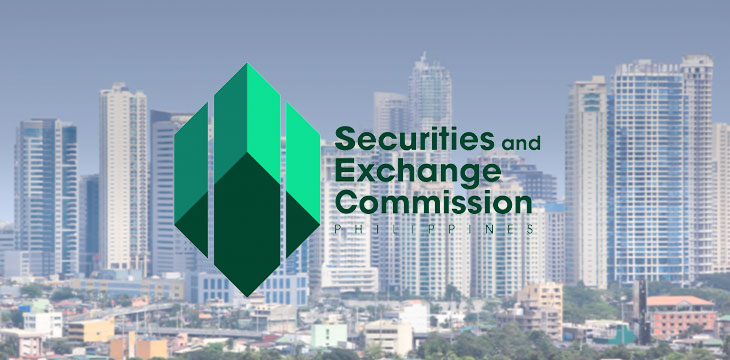|
Getting your Trinity Audio player ready...
|
The Philippines’ Securities and Exchange Commission (SEC) has released public advisories against three virtual currency companies offering unregistered securities in the country.
The three companies include BKC Trading, Meta Trade, and Platinum Coin, which the SEC claims breached the Philippines’ Capital Market Laws. Members of the public have been warned to exercise extreme caution in dealing with the named companies as the securities watchdog ups the ante against bad actors.
For Meta Trade, the SEC pointed out that its offer of 400% gains after 30 days on deposits are investment contracts that require registration with the Commission. However, the SEC notes in its public warning that the firm had failed to obtain a registration with the Commission and, as such, “operates without the necessary license or authority.”
The SEC noted that BKC Trading does not have the necessary permit to solicit investments from the general public, adding that its offerings bear similarities with a Ponzi scheme.
“Furthermore, the scheme employed by BKC Trading has the characteristics of a Ponzi Scheme where money from new investors is used in paying fake profits to prior investors and is designed mainly to favor its top recruiters and prior risk takers and is detrimental to subsequent members in case of scarcity of new investors.
Platinum Coin was found to be in violation of the SEC rules of failing to seek registration before offering securities to the public and for operating in a manner similar to a Ponzi scheme. The SEC advisory against the firm included warning individuals acting as its brokers or salesmen that they risk potential jail time of 21 years or the payment of fines of up to PHP5 million (US$91,342).
Scaling up efforts for effective regulation
Last week, the SEC announced a collaboration with the University of the Philippines Law Center (UPLC) to research efficient digital asset regulation. Both entities disclosed at the signing of the partnership that it was imperative for innovation to be applied in the regulatory process, given the novel nature of virtual currencies.
“We were about to issue these rules, but the crash of several digital asset companies compelled us to revisit them,” said SEC Chairman Emilio Aquino. “We just can’t discount the key information that led to their downfall.”
Aquino added that the research work from UPLC will be useful in creating efficient regulations for the local virtual currency ecosystem. The securities regulator has already issued a clutch of advisory warnings against virtual currency firms in 2023 and is on track to surpass its 2022 figures.
Watch: Philippines needs to create more blockchain use cases

 02-26-2026
02-26-2026 




